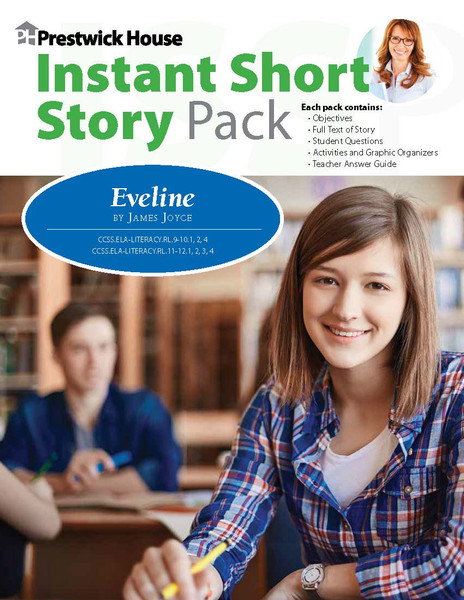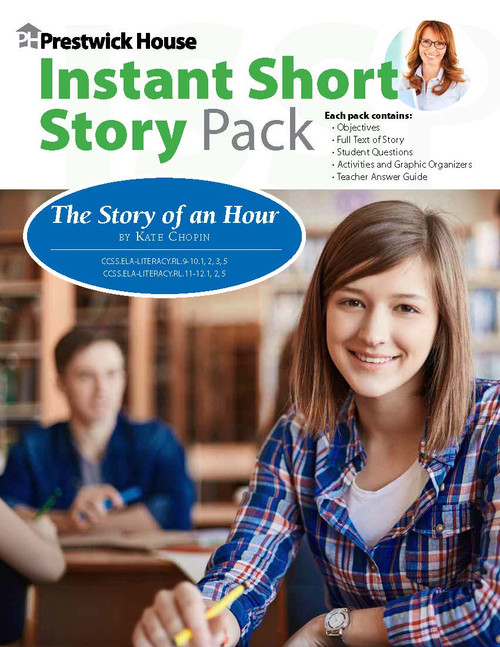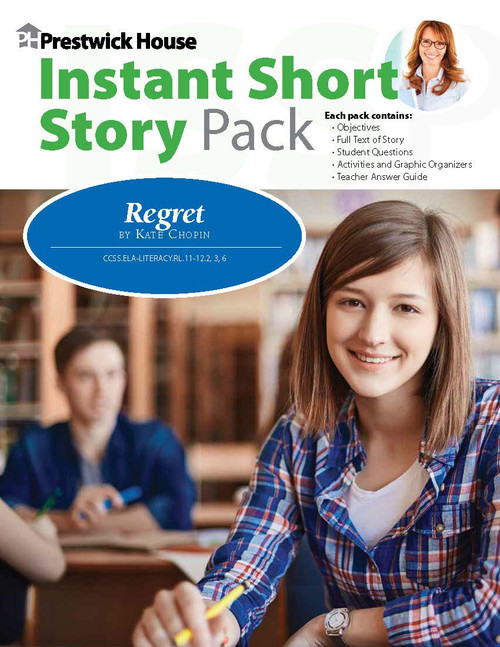Product Overview
Instant Resources for Eveline by James Joyce!
Whether you're looking for a short story to pair with the novel you're teaching, or you need a 2- to 3-day sub plan to use with the stories in your textbooks, Prestwick House Instant Short Story Packs go beyond basic comprehension to help students learn how to analyze literature.
Each downloadable pack addresses key skills through 5-10 standards-based analysis questions by guiding students through a series of scaffolding graphic organizers and in-class activities.
This Instant Short Story Pack for Eveline by James Joyce:
- Scaffolding graphic organizers and in-class activities
- Standards-based objectives
- Introduction and pre-reading notes
- Complete short story text
- Rigorous analysis questions
- Detailed teacher's answer guide
About Eveline
“Eveline” was first published in 1904 in the Irish Homestead, a weekly publication that was unofficially associated with the Irish Home Rule movement. Joyce later included it in his 1914 collection Dubliners, which is more than just a group of stories printed together in a single volume. In many ways, the collection functions as a unified whole; characters from one story make appearances in others. Key events in one plot are referred to in other stories. “Eveline” can, therefore, also be studied in the context of the other stories in the Dubliners collection.
Joyce intended Dubliners to invite the Irish to examine what he saw as their cultural and social stagnation. The characters are common people—toward the lower end of the middle class—and his plots involve commonplace occurrences and events. In most, the main character struggles with the decision whether to take some kind of action or to remain passive and trapped in an unhappy present, and also in most, the main character chooses the unhappy present.
Notice the importance Eveline places on, not only her unsatisfactory present circumstances, but also on the word “Home!” Her home includes beatings, departures, loss, poverty, threats, and deaths. Why, then, does she make the decision to remain? Is it because she “seems to have been rather happy then”? Is it the “familiar objects” she cannot bear to leave behind? Does the future as a married woman in “Buenos Ayres” frighten her? There are no right or wrong answers since Joyce simply offers possibilities.
Whether you discover you agree or disagree with Eveline’s decision at the end of the story, make sure you consider the supposed reasons for that decision and the thought process by which she decides. What will be the consequences of the decision? She has traded the unknown for the familiar, but at what cost?












